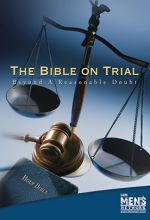Schlatter's Scholarship Upheld the Bible's Truth
ON THIS DAY, 16 August 1852, Adolf von Schlatter was born in St. Gall, Switzerland, the son of a Pietist preacher. Schlatter always remembered his home fondly, for the faith of his father Stephen and his mother Sarah found its echo in him. Science also was important to the von Schattlers. Their devotional room was stuffed with samples of flora and fauna. The boy was deeply interested in both faith and fauna all his life.
Schlatter hesitated to pursue theological studies because he feared that rationalistic schools would undermine his faith, but his sister Lydia encouraged him to meet the challenge boldly. After studying philosophy and theology at Basel and Tübingen, he became a pastor and married. Sadly, his wife Suzanne died young, but not before the couple had five children.
When Schlatter applied for his post-doctoral qualification to teach theology, the hiring committee put him through a more rigorous examination than any other candidate, but Schlatter triumphed. As a professor, he clung to the historical Jesus. “The first and to me dearest task was passing along the word of Jesus,” he wrote.
Schlatter (who could quote vast portions of scripture in the original languages) said that he stood under, not over Scripture. Although many of his contemporary theologians rejected Christ’s resurrection and his understanding of himself as Messiah, Schlatter insisted that to be consistent, New Testament studies had to retain such articles of faith intact. He wrote, “The knowledge of Jesus is the foremost, indispensable centerpiece of New Testament theology.” Students reported that joy radiated from him during his lectures. Hundreds flocked to hear him. More than thirty of his books are still in print.
Among the points Schlatter emphasized was that the origins of the church must be understood in the context of first century Judaism. A decade after his death, the discovery of the Dead Sea scrolls vindicated him.
In his final work, Do We Know Jesus? written the year he died (1938), Schlatter asked, “Do we know Jesus? If we no longer know him, we no longer know ourselves.”
The Nazis were rising in Schlatter’s day, and he spoke against their teachings and those of the so-called “German Christians.” At least two martyrs in Nazi Germany—Paul Schneider and Dietrich Bonhoeffer—were influenced in their faith by Schlatter.
—Dan Graves
----- ----- -----
Schlatter was the defender of the Bible in his day. Others carry the torch today. See more in Bible on Trial: Beyond a Reasonable Doubt
Bible on Trial: Beyond a Reasonable Doubt can also be streamed at RedeemTV






